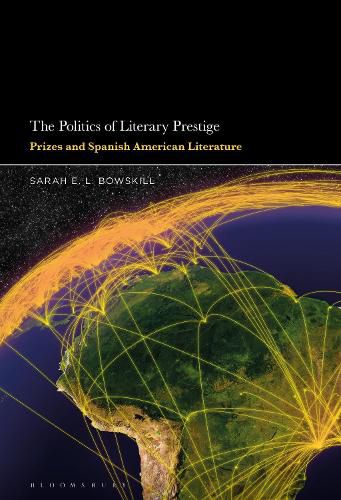Readings Newsletter
Become a Readings Member to make your shopping experience even easier.
Sign in or sign up for free!
You’re not far away from qualifying for FREE standard shipping within Australia
You’ve qualified for FREE standard shipping within Australia
The cart is loading…






The Politics of Literary Prestige provides the first comprehensive study of prizes for Spanish American literature. Covering state-sponsored and publisher-run prizes including the Biblioteca Breve Prize - credited with launching the ‘Boom’ in Spanish American literature - the Premio Cervantes and the Nobel Prize for Literature, this book examines how prizes have underpinned different political agenda. As new political positions have emerged so have new awards and the role of the author in society has evolved. Prizes variously position the winners as public intellectual, spokesperson on the world stage or celebrity in the context of an increasingly globalized literature in Spanish.
Drawing on a range of sources, Sarah E.L Bowskill analyses prizes from the perspective of different stakeholders including states, publishers, authors, judges and critics. In so doing, she untangles the inner workings of literary prizes in Spanish-speaking contexts, proposes the existence of a prizes network and demonstrates that attitudes to cultural prizes are not universal but are culturally determined.
$9.00 standard shipping within Australia
FREE standard shipping within Australia for orders over $100.00
Express & International shipping calculated at checkout
The Politics of Literary Prestige provides the first comprehensive study of prizes for Spanish American literature. Covering state-sponsored and publisher-run prizes including the Biblioteca Breve Prize - credited with launching the ‘Boom’ in Spanish American literature - the Premio Cervantes and the Nobel Prize for Literature, this book examines how prizes have underpinned different political agenda. As new political positions have emerged so have new awards and the role of the author in society has evolved. Prizes variously position the winners as public intellectual, spokesperson on the world stage or celebrity in the context of an increasingly globalized literature in Spanish.
Drawing on a range of sources, Sarah E.L Bowskill analyses prizes from the perspective of different stakeholders including states, publishers, authors, judges and critics. In so doing, she untangles the inner workings of literary prizes in Spanish-speaking contexts, proposes the existence of a prizes network and demonstrates that attitudes to cultural prizes are not universal but are culturally determined.